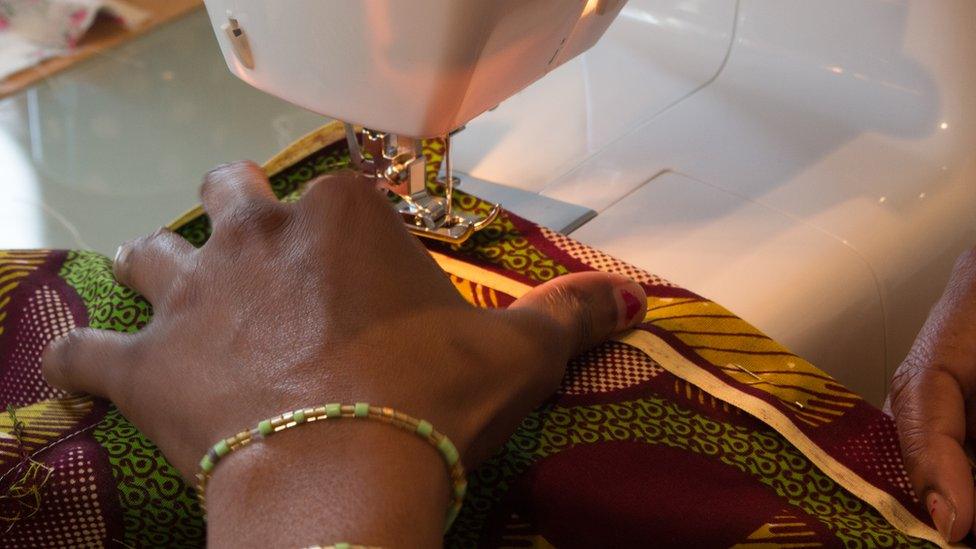Fear prevents workers reporting low pay - report
- Published

Workers fear violence or being labelled a "snitch" if they report their employers for failing to pay the minimum wage, a report has found.
The Low Pay Commission says the "taboo" around reporting abuses is a major barrier to enforcing the legal minimum.
The report was based on the garment industry in Leicester, which has a history of underpaying workers.
But it said the findings apply to all efforts to improve the conditions of low-paid workers across the UK.
The report, external details how "employers have instilled fear in their workers" with intimidation and harassment in the workplace.
One worker explained that, if enforcement bodies came to the factory, their boss would act on any suspicions of who made a complaint and fire the person immediately.
Workers were told their P45 could be withheld or "marked" in such a way that they would never work again if it was thought they were causing trouble.
Supply chain auditors with experience of collecting worker testimony said "the fear of retribution is … very real among these workers, to the point where they will sit and shake in meetings or hold your hand as they're talking to you".
One worker had experienced factory owners and managers coaching workers on how to respond to questions from enforcement bodies.
Low Pay Commission chair Bryan Sanderson said: "The evidence we heard from workers in Leicester was striking.
"Despite some positive recent progress, job insecurity, a poisonous workplace culture and low expectations leave workers trapped in poor-quality jobs and vulnerable to exploitation.
"These same factors mean they are unlikely to report abuses, which undermines efforts to enforce workers' rights.
"The problem demands comprehensive action, including to give these workers greater security over their hours and incomes."

Minimum wage rates
National Living Wage for over-23s: From £8.91 to £9.50 an hour
National Minimum Wage for those aged 21-22: From £8.36 to £9.18
National Minimum Wage for 18 to 20-year-olds: From £6.56 to £6.83
National Minimum Wage for under-18s: From £4.62 to £4.81
The Apprentice Rate: From £4.30 to £4.81

Lower-paid ethnic minority health and social care workers are particularly fearful of raising concerns in the workplace, out of fear that they may lose their jobs, a separate inquiry by the Equality and Human Rights Commission, external (EHRC) has found.
Workers didn't think they would be listened to or protected, or that their rights would be upheld with some experiencing bullying, harassment and abuse related to their race.
Ethnic minority staff generally have worse employment outcomes than their white peers, the EHRC inquiry found.
The Low Pay Commission, a government agency which recommends the level for the minimum wage, is calling on ministers to end "one-sided flexibility", which it defines as "a requirement to be available for work at very short notice, without any guarantee that work will actually be available".
This can make managing finances, or securing a mortgage, difficult and can feel unfair "especially when the reality of the working arrangement is that the individual regularly works 40 hours a week".
The commission's report found that the process for reporting abuses does not work for the most vulnerable low-paid workers and recommends HM Revenue and Customs (HMRC) address this issue.
Anyone can report an employer to HMRC for not paying the minimum wage and the initial report can be anonymous.
The maximum fine for non-payment is £20,000 per worker. Employers who fail to pay can be named publicly and banned from being a company director for up to 15 years.